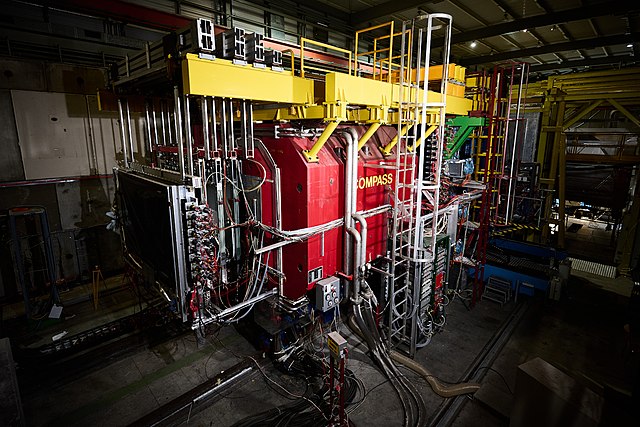The NA58 experiment, or COMPASS is a 60-metre-long fixed-target experiment at the M2 beam line of the SPS at CERN. The experimental hall is located at the CERN North Area, close to the French village of Prévessin-Moëns. The experiment is a two-staged spectrometer with numerous tracking detectors, particle identification and calorimetry. The physics results are extracted by recording and analysing the final states of the scattering processes.
Construction of the COMPASS I experiment
The COMPASS II experiment in the North Area
Artistic view of the COMPASS experiment
A fixed-target experiment in particle physics is an experiment in which a beam of accelerated particles is collided with a stationary target. The moving beam consists of charged particles such as electrons or protons and is accelerated to relativistic speed. The fixed target can be a solid block or a liquid or a gaseous medium. These experiments are distinct from the collider-type experiments in which two moving particle beams are accelerated and collided. The famous Rutherford gold foil experiment, performed between 1908 and 1913, was one of the first fixed-target experiments, in which the alpha particles were targeted at a thin gold foil.
NA62 experimental area at CERN that fires high-energy protons from the Super Proton Synchrotron (SPS) into a stationary beryllium target.
COMPASS experimental area at CERN that fires muons and pions at a polarized target.





